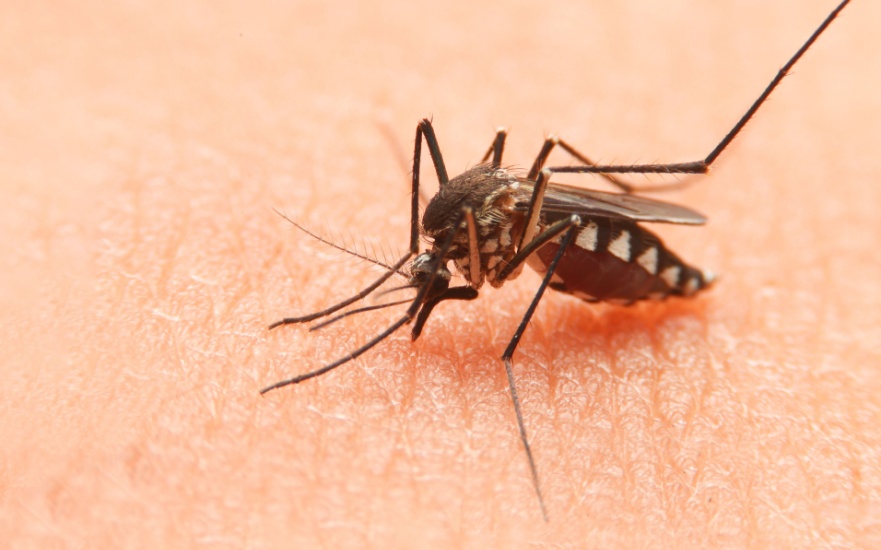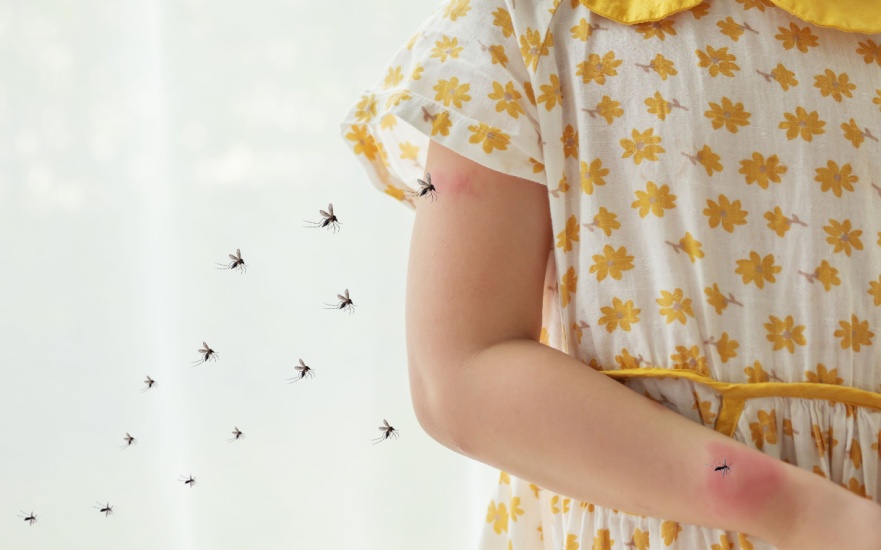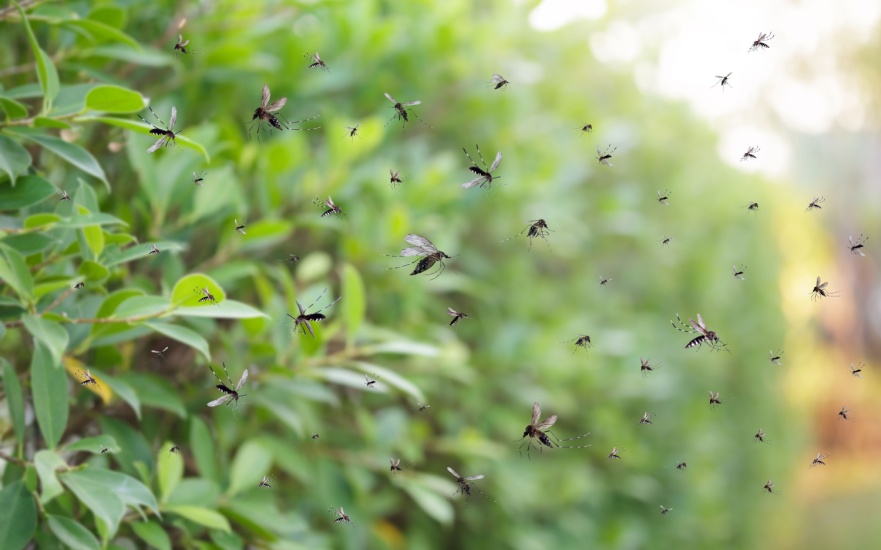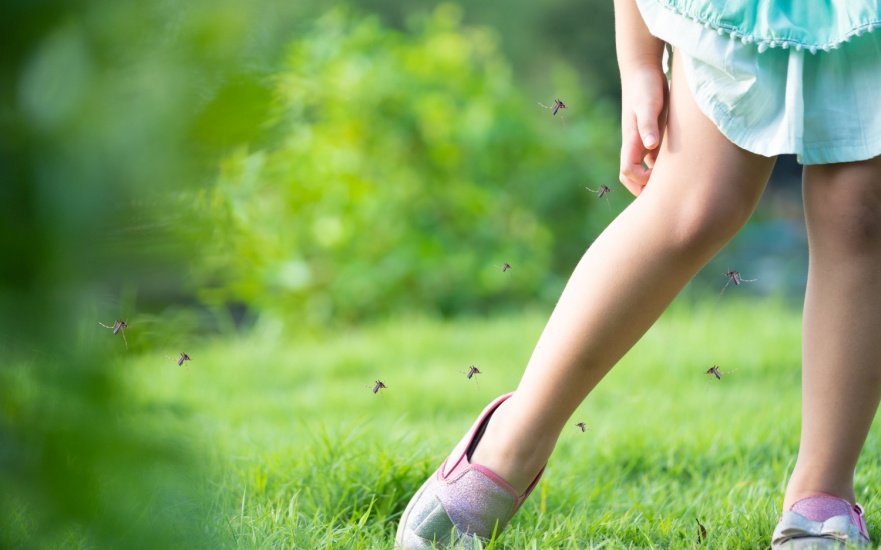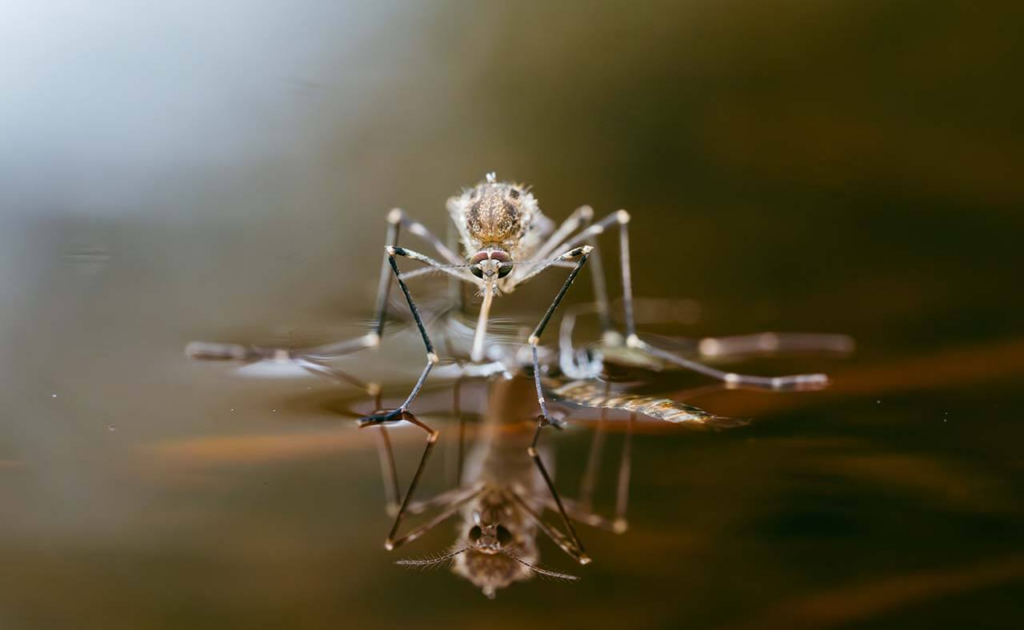Dallas, TX, has a big problem with mosquitoes. These bugs can spread diseases like West Nile Virus and Zika. The city’s warm and humid weather makes it perfect for mosquitoes to live and grow.
The City of Dallas knows how important it is to stop mosquitoes. They have a Mosquito Control Program to keep people safe. If you live in Dallas and have mosquito problems, Vinx Pest Control can help. They offer services to get rid of mosquitoes and keep you safe.
Key Takeaways
- Mosquitoes in Dallas, TX, can transmit serious diseases.
- The local climate is conducive to mosquito infestations.
- Vinx Pest Control provides effective mosquito management solutions.
- Mosquito control is critical for public health.
- Professional services can greatly reduce mosquito numbers.
The Mosquito Situation in Dallas
Dallas’s warm weather is perfect for mosquitoes. The city faces a big mosquito problem. This problem comes from the local weather and how mosquito activity changes with the seasons.
Why Dallas Climate Favors Mosquito Proliferation
Dallas has hot summers and mild winters. This mix is great for mosquitoes. Mosquitoes love it when it’s over 50°F, and Dallas stays warm enough for them most of the year.
- High temperatures make mosquitoes breed faster.
- Summer rain creates lots of standing water, perfect for mosquito eggs.
- Mild winters let mosquitoes stay active all year, but not as much.
This weather makes it important for people in Dallas to manage mosquitoes well.

Seasonal Mosquito Activity in North Texas
Mosquitoes in North Texas are more active at certain times. The late spring and early fall are the busiest times. Warm weather and more rain make these times best for mosquito breeding.
- Spring (March to May): Mosquito numbers start to go up as it gets warmer.
- Summer (June to August): Mosquitoes are most active because of the heat and humidity.
- Fall (September to November): Mosquito numbers go down as it cools, but some stay active.
Knowing when mosquitoes are most active helps people prevent them better.
Common Mosquito Species Plaguing Dallas Residents
Mosquitoes are a big problem in Dallas. They can make people uncomfortable and even spread diseases.
Asian Tiger Mosquito (Aedes albopictus)
The Asian Tiger Mosquito has white stripes on a black body. It bites a lot, even in the daytime. It can spread Chikungunya and Dengue Fever.
It likes standing water around homes and public places.
Southern House Mosquito (Culex quinquefasciatus)
The Southern House Mosquito is common in Dallas. It spreads West Nile Virus, a big worry in North Texas. It bites at dusk and dawn.
It breeds in polluted water.
Yellow Fever Mosquito (Aedes aegypti)
The Yellow Fever Mosquito can spread Zika Virus, Dengue Fever, and Chikungunya. It has white marks on its legs and body. It bites during the day.
It likes water in containers to breed.
Health Risks Associated with Mosquito Problems in Dallas
Mosquitoes in Dallas are a big health risk. It’s important to know the dangers they bring. The city’s weather and land make it a great place for mosquitoes to live.
West Nile Virus: Dallas County Statistics and Concerns
West Nile Virus (WNV) is a big health risk in Dallas. It spreads through mosquito bites. The City of Dallas checks for mosquitoes every week.
Dallas County has seen ups and downs in WNV cases. This shows we need to stay careful and take steps to prevent it.

Other Mosquito-Borne Diseases in Texas
Other diseases like dengue fever, chikungunya, and Zika virus are also a worry in Texas. These diseases are not as common as WNV. But, the risk of getting them is there, mainly for people who travel.
Everyone should try to avoid getting bitten by mosquitoes.
Vulnerable Populations and Health Implications
Some people are more at risk from mosquito-borne diseases. This includes the elderly, young kids, and those with weak immune systems. If they get sick, it can be very serious.
It’s key to know these risks and take steps to prevent them. This helps keep these groups safe.
Identifying Mosquito Breeding Grounds on Your Dallas Property
To fight mosquito problems in Dallas, knowing where they breed is key. Mosquitoes need water to make more, and even a little water can be a problem. By finding and fixing these spots, you can cut down the mosquito numbers on your land.
Common Water Sources That Attract Mosquitoes
Mosquitoes like any water they can find. Places where water often gathers include:
- Pet water dishes
- Clogged drains and gutters
- Flowerpots and saucers
- Old tires and containers
- Pools and hot tubs that are not properly maintained
Checking and removing standing water around your home is key to mosquito prevention.
Hidden Mosquito Breeding Sites Homeowners Often Miss
Some places where mosquitoes breed are not easy to see. Look for breeding spots in:
- Underneath decking and porches
- Inside hollow trees and stumps
- Near leaky hoses or faucets
- In bird baths and ornamental ponds
Knowing about these spots helps you take better steps to keep mosquitoes away from your home.
How Mosquitoes Impact Dallas Outdoor Living
In Dallas, mosquitoes are more than just a nuisance. They really affect how we enjoy the outdoors. The city’s warm weather and occasional heavy rain make it perfect for mosquitoes. This changes how we use our homes and public areas.
Disruption to Backyard Activities and Entertainment
Mosquitoes ruin fun outside, like barbecues and playing with kids. They make us change our plans for the outdoors. This includes events like concerts and festivals, which are big in Dallas.
- Outdoor dining and social events get cut short.
- People might stay inside when mosquitoes are out.
- Playing outside is risky for kids because of mosquitoes.

Economic Impact on Local Businesses and Tourism
Mosquitoes hurt local businesses and tourism in Dallas a lot. Illnesses from mosquitoes and the annoyance they cause can scare off visitors. This hurts the local economy. Places that need people outside, like cafes and tour groups, suffer the most.
- Less money comes in from tourists because of mosquitoes.
- Businesses might spend more on keeping mosquitoes away.
- Dallas is less appealing to visitors because of mosquitoes.
DIY Mosquito Prevention Strategies for Dallas Homes
Mosquitoes are a big problem in Dallas. But, there are easy DIY ways to fight them. By using these methods, homeowners can cut down the mosquito numbers near their homes.
Water Management Techniques
Managing water well is key to stopping mosquitoes. Mosquitoes need water to lay eggs. So, it’s important to get rid of standing water around your home.
Look for places where water might gather, like clogged drains or bird baths. Empty these places often. Make sure water drains away properly to stop mosquitoes from breeding.
Mosquito-Repelling Plants for Texas Gardens
Some plants can keep mosquitoes away. These plants are great for Texas gardens. Citronella, lemongrass, and lavender are good examples.
Adding these plants to your garden or keeping them in pots can help keep mosquitoes away. For more help, check out Vinx Pest Control for expert advice.
Home Remedies and Their Effectiveness
There are home remedies to help fight mosquitoes. Using repellents with DEET or EPA-approved ingredients works well. You can also make your own spray with essential oils like peppermint or lemongrass.
But, remember, these home remedies might not work for everyone. Always follow the “Four Ds” of mosquito protection. This means Drain standing water, Wear insect repellent, Dress in protective clothes, and Stay indoors when mosquitoes are most active.
Effective Mosquito Repellent Options for Personal Protection
Mosquito repellents help keep you safe from mosquito bites. When you’re outside, like in Dallas, TX, the right repellent is key. It helps avoid bites and diseases.
EPA-Approved Repellents and Application Methods
EPA-approved repellents are safe and work well. They include DEET, picaridin, and oil of lemon eucalyptus. Apply them to skin and clothes as the label says.
- DEET-based repellents last a long time.
- Picaridin repellents are as good as DEET but might be kinder to skin.
- Oil of lemon eucalyptus is a natural way to keep mosquitoes away.
Natural Alternatives for Sensitive Individuals
For those who can’t handle chemical repellents, natural options are good. Look for ones with citronella, lemongrass, and geraniol. They might need more use but are safe for sensitive skin.
Want to know how to keep mosquitoes away from your home? Check out our page on how to keep mosquitoes away.
Creating Mosquito Barriers Around Your Property
Building a mosquito barrier around your home is smart. You can do this by getting rid of standing water, using plants that repel mosquitoes, and putting up screens. This makes your outdoor spaces safer.
- Get rid of standing water to stop mosquitoes from breeding.
- Plant citronella and lemongrass to keep mosquitoes away.
- Use screens or nets to block mosquitoes from getting in.
Vinx Pest Control’s Mosquito Solutions
At Vinx Pest Control, we know how annoying and unhealthy mosquitoes are in Dallas, TX. We offer solutions to help. Our methods are made to fit your property’s needs.
Advanced Mosquito Inspection and Assessment Process
We start by checking your property for mosquitoes. Our team looks for places where mosquitoes might live, like standing water and green areas. They use special tools to find these spots.
- Identification of mosquito breeding grounds
- Assessment of mosquito species present
- Evaluation of environmental factors contributing to mosquito activity
Customized Treatment Plans for Dallas Properties
After inspecting, we make plans just for you. These plans are effective, quick, and safe for the planet.
Our plans include:
- Mosquito larval control measures
- Adult mosquito control treatments
- Recommendations for property modifications to reduce mosquito habitats
Environmentally Responsible Mosquito Control Methods
We use green ways to fight mosquitoes at Vinx Pest Control. Our methods are safe for the earth and people. We use a mix of natural and chemical controls.
Some green methods we use are:
- Biological larvicides that target mosquito larvae
- Organic adulticides that are safe for people, pets, and the environment
- Property modifications that reduce standing water and mosquito habitats
Long-Term Mosquito Management with Professional Help
Professional help is key to managing mosquitoes. The City of Dallas traps mosquitoes weekly. This shows we need to act fast to keep our spaces safe.
Year-Round Protection Programs by Vinx Pest Control
Vinx Pest Control has special programs for Dallas homes. We do regular checks and create plans just for you. Our methods are safe for the environment.
Our programs change with the seasons. This keeps your home mosquito-free all year. We’re ready for any mosquito activity.
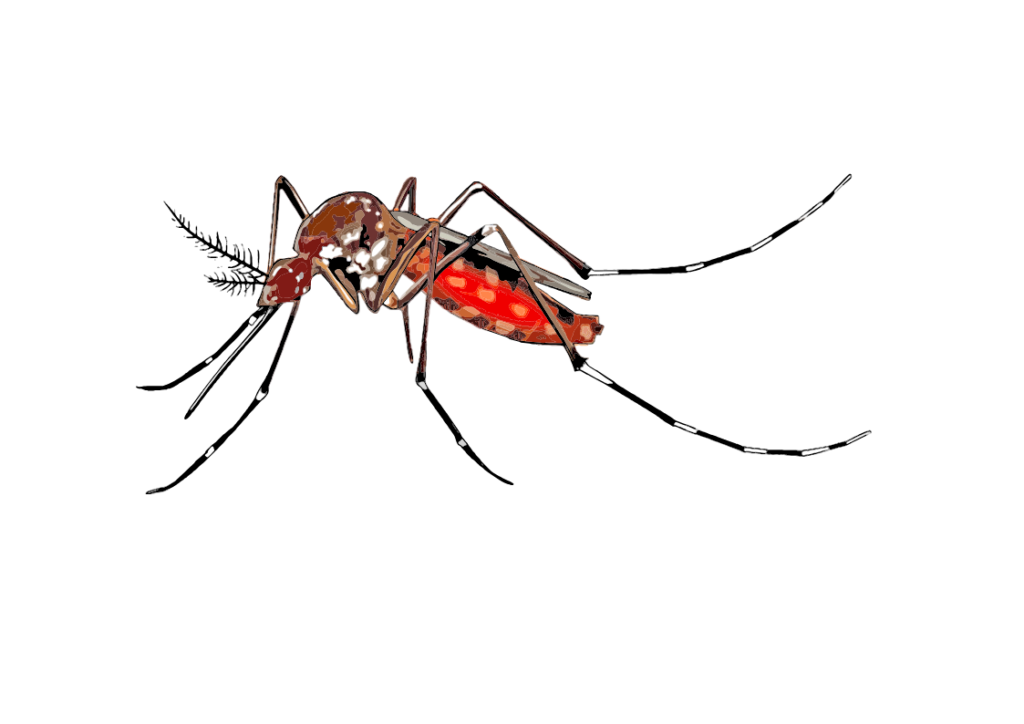
Combining Professional Treatments with Homeowner Practices
Professional help and your actions at home are best together. Get rid of standing water and use plants that keep mosquitoes away. Also, use EPA-approved repellents. This makes our treatments work better.
At Vinx Pest Control, we teach you how to prevent mosquitoes. Together, we make your outdoor areas safe and fun for everyone.
When to Schedule Professional Mosquito Control in Dallas
To have a mosquito-free outdoor time in Dallas, it’s key to book professional mosquito control at the best time. The City of Dallas has set spraying dates for places with West Nile Virus. This helps residents know when to act.
Optimal Timing for Preventative Treatments
Preventative treatments work best before mosquito season gets busy. In Dallas, book services in early spring, like March or April. This stops mosquitoes from breeding and lowers West Nile Virus risk.
Emergency Mosquito Control for Severe Infestations
For big mosquito problems or West Nile Virus in your area, you might need emergency control. Vinx Pest Control is ready to help right away. They make sure your outdoor areas are safe and fun.
Conclusion: Reclaiming Your Outdoor Spaces from Mosquito Problems
To get rid of mosquitoes outside, you need a good plan. First, know the mosquito problem in Dallas. Then, find where they breed and use good repellents. Vinx Pest Control has special plans and safe ways to control mosquitoes.
We do detailed checks, make plans just for you, and keep watching to make sure it works. Our team uses smart methods to fight mosquitoes. You can make your outside areas better by following our tips. For more info, visit our website.
FAQ
Q: What are the most common mosquito species in Dallas, TX?
A: In Dallas, you’ll find Asian Tiger Mosquitoes, Southern House Mosquitoes, and Yellow Fever Mosquitoes. These mosquitoes can spread diseases like West Nile Virus and Zika.
Q: How can I identify mosquito breeding grounds on my property?
A: Look for water sources like clogged drains and bird baths. Also, check flowerpots and tree holes that might hold water.
Q: What are some effective DIY mosquito prevention strategies?
A: To keep mosquitoes away, manage water on your property. Plant citronella and lemongrass. Use vinegar and essential oils too.
Q: What are the best mosquito repellent options for personal protection?
A: Use EPA-approved repellents with DEET, picaridin, or oil of lemon eucalyptus. Natural options like citronella candles and wearable repellents work well too.
Q: How can Vinx Pest Control help with mosquito control?
A: Vinx Pest Control offers detailed inspections and treatment plans. They use safe methods for long-term protection.
Q: When is the best time to schedule professional mosquito control in Dallas?
A: Schedule mosquito control in early spring or during emergencies. This helps prevent diseases.
Q: How can I prevent mosquito bites and reduce the risk of mosquito-borne diseases?
A: Use repellents and wear protective clothes. Eliminate standing water. Consider professional services for extra protection.
Q: What are the health risks associated with mosquito problems in Dallas?
A: Mosquitoes in Dallas can spread diseases like West Nile Virus and Zika. These diseases are dangerous, mainly for the elderly and young children.
Q: Can mosquito control services help with mosquito infestation and eradication?
A: Yes, services like Vinx Pest Control can help. They offer treatment plans and prevention strategies to keep your outdoor spaces safe.
Q: How do mosquitoes impact outdoor living in Dallas?
A: Mosquitoes can ruin outdoor fun in Dallas. They affect backyard activities and local businesses. This can also hurt tourism and quality of life.



